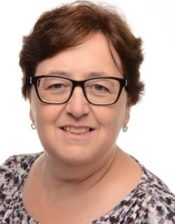The field of antithrombotic therapy is at present undergoing a rapid growth phase with the development of numerous agents that have the ability to inhibit various stages of the coagulation system and/or promote fibrinolysis. The development of these new antithrombotic drugs will provide pediatric patients and physicians with access to medications with unique properties that will challenge the current utilization of heparins and warfarin derivatives, many of which have been in existence for over 50 years. Establishing the benefits and risks in children of these new drugs relative to standard anticoagulation therapies will require trials that demonstrate convincing signals of non-inferiority or, ideally, superiority. The risks and harms of new agents will require adequate safety databases for bleeding and off-target toxicities that facilitate a clear understanding of net clinical benefit assessments. While new drug approvals in children will rely heavily on safety and efficacy findings from multicenter clinical trials, effectiveness in the real-world pediatric setting needs to be fully evaluated. Additionally, the role of new drugs in special pediatric subpopulations/settings and specific indications requires formal study. Physicians will also need comparative effectiveness data to inform clinical decision-making in regard to costs, benefits, and risks of “competing” drugs with differing mechanisms of action and/or modes of administration. As such pediatric drug development programs will usually build on adult evidence with the drug, it will be important that pediatric trials target relevant pediatric indications and generate as much complementary information needed to inform use of the drug in children while still being feasible. These challenges demand a cohesive approach to the design and execution of trials used for the development and approval of new antithrombotics and for post-approval comparative effectiveness and outcome studies, and were the impetus for the creation of a new, multinational, multidisciplinary, multi-institutional group of pediatric antithrombotic therapy trialists, the Pedi-ATLAS Group (Pedi-ATLAS), bringing together leading academic experts whose shared mission is to inform and optimize the design, execution, and oversight of pediatric antithrombotic therapy programs and individual trials, across all stages of drug development: from early stage development, through the new drug/device application process and regulatory agency approvals, to post-marketing studies.
Pedi-ATLAS
The partnership of a multi-institutional, multidisciplinary academic thought leadership group of trialists with a non‑profit Academic Research Organization was described in 2010 for the ARO CPC Clinical Research (CPC) and the ATLAS Group (Goldenberg NA et al., Improving academic leadership and oversight in large industry-sponsored clinical trials: the ARO-CRO model. Blood 2010). Pedi-ATLAS has a similar partnership with CPC to that of the adult-focused ATLAS Group, in which CPC provides distinguishing strengths as an ARO: for example, management of independent trial oversight committees (e.g., Steering, Clinical Endpoint, Data and Safety Monitoring), endpoint quality assurance training and monitoring, and independent validation of statistical analyses, as warranted. CPC has a long track record of trial leadership and management experience in vascular disease and antithrombotic agents, and CPC physician- and methodology-leaders also bring to the Pedi-ATLAS partnership additional regulatory experience and expertise, to assist Sponsors and Pedi-ATLAS with regulatory agencies interactions. In this way, CPC as an ARO complements and augments the functions performed by a CRO contracted by an industry Sponsor, or the industry Sponsor itself. CPC also performs a key function in establishing and maintaining consulting agreements with each of the Pedi-ATLAS members, and in executing master consulting agreements and master confidentiality/non-disclosure agreements with Sponsors on behalf of all Pedi-ATLAS members, including invoicing Sponsors and processing payments received from Sponsors for activities performed by Pedi-ATLAS members. Pedi-ATLAS is intended to represent a ‘one stop shop’ for industry partners providing harmonized advice from a broad panel of experts. Moreover, the formation of Pedi-ATLAS and its partnership with CPC allows the academic thought leadership group to engage more efficiently in program/trial design and trial oversight, as well as strategic planning across multiple drug development programs.
The adult-focused, multinational, multidisciplinary, multi-institutional ATLAS group was established in 2009 and has remained active in providing academic thought leadership and engagement in trial design, oversight committees and associated publications in the antithrombotic field, with particular emphasis in adult indications (including venous thromboembolism treatment and prevention, stroke prevention in atrial fibrillation, and prevention of thrombotic/occlusive events in peripheral arterial disease. With the formation of the Pedi-ATLAS group, a deliberate “twinning” was established with the adult-focused ATLAS group, in order to provide infant-to-elderly development program expertise and coordination for antithrombotic trials. Furthermore, two of the founding members of Pedi-ATLAS, Drs. Goldenberg and Bonaca, are also members of the ATLAS Group, and convene the two groups in combined meetings on both a standing semi-annual basis and in interim ad hoc meetings as needs arise.
ISTH Pediatric/Neonatal SSC: Pedi-ATLAS members are drawn largely from the ISTH Pediatric/Neonatal Scientific and Standardization Committee of the International Society of Thrombosis and Haemostasis whose mandate is to provide scientific and clinical guidance on various issues in pediatric thrombosis and hemostasis. Pedi-ATLAS collaborates closely in particular with two entities of this SSC:
Antithrombotic Trials working group: This scientific working group, open to all members of the Pediatric/Neonatal SSC, deals with methodological and strategic issues around pediatric antithrombotic clinical trials, e.g. appropriate study designs, definition and validation of endpoints, input into regulatory guidance, etc., aiming to optimize and harmonize methodological approaches for both academic and industry-sponsored clinical trials.
International Pediatric Thrombosis Network (IPTN): IPTN is a recently founded research platform of the Pediatric SSC to facilitate international research collaboration. IPTN features several research projects, foremost the Throm-Ped registry, evaluating the epidemiology, risk factors, diagnosis, and treatment of thrombosis in children in general, the Neonatal Renal Vein Thrombosis registry, and the Throm-Ped Real-world DOAC registry. IPTN also represents a network of pediatric thrombosis centres with clinical trials expertise, available for industry sponsors and relevant Pedi-ATLAS-affiliated non-profit organizations for protocol input, feasibility assessments, and conducting pediatric antithrombotic multicenter studies.
Institute for Advanced Clinical Trials for Children (I-ACT) and Connect4children (C4C): These non-profit generic multinational pediatric clinical trial platforms share common goals with Pedi-ATLAS in regard to optimizing the design and implementation of industry-sponsored pediatric clinical trials and programs through academia-industry relationships, but cover a broad range of disciplines and therapeutic areas, not limited to antithrombotics. The US-based I-ACT has a strategic alliance with the Europe-based C4C network. Pedi-ATLAS members, and/or geographically-aligned members thereof (e.g., European members, for C4C) serve as members of therapeutic-area-specific or discipline-specific academic thought leadership groups associated with, affiliated with, and/or recognized by I-ACT or C4C.









